
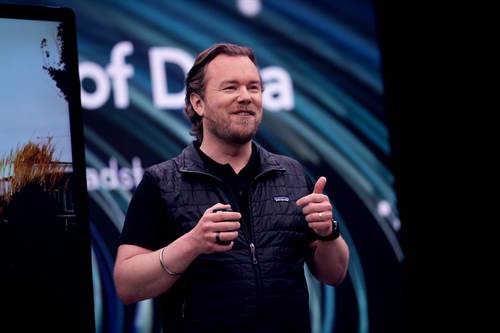
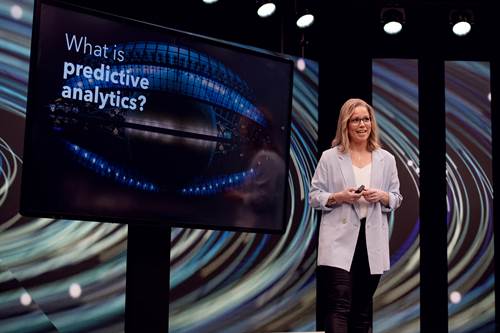
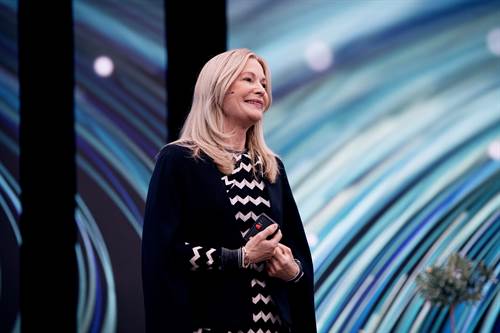
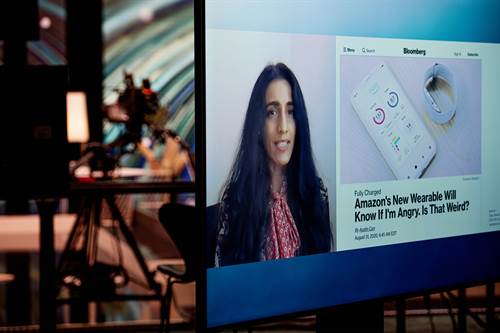
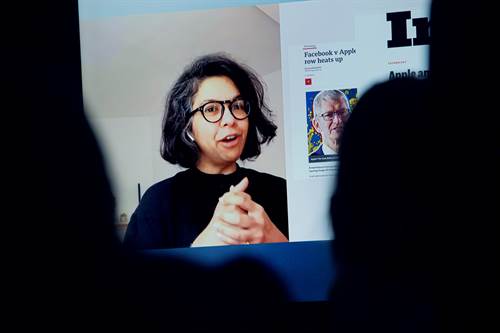




AI author Antti Merilehto, the CGO of Houston Analytics, said customers don’t always know what they want before their actual purchasing decision. “There are so many options,” Antti pointed out. “This is the world of our customers.”
Therefore there is value to securing data from the locations where customers make their actual purchase decisions, rather than rely on what they said in a survey about what they would do.
The customers might surprise you. For example, Coca-Cola realised that American consumers going to the movie theatre, when confronted with an entire wall of self-service soda dispensers, would invent their own drink by mixing Coca-Cola and Sprite products.
“What do customers do when they have the freedom to test?” Antti asked.
Anna Albinsson, CMO at Dun&Bradstreet, said that bad organisation wastes good data. Despite sales and marketing being “heavily interconnected in reality,” Anna said, the lack of collaboration means data will not be turned into profit.
“I don’t think I’ve spoken to any CMO or sales manager who doesn’t think they need to work with getting S&M working as one,” Anna said. “What we want is awareness and consideration because marketing is doing one part of the work, sales are doing another part and they need to align around processes, tech and people.”


Sara Öhrvall, the author of “Your future self”, sees huge potential and problems with body tech moving from outside our bodies to the inside – for example, from fit-bit bracelets to teeth sensors measuring a person’s intake of nutrients and calories.
To satiate her curiosity, Sara went all in, allowing new tech to capture her body’s many data sets – not just physical health, but emotional too. “It might sound stressful but it gave me a certain sense of peace and understanding how my body reacted to different situations,” she said. “I can get to know myself better when I can connect my emotions to my calendar and my contacts, then I get a database in what situations and with whom my emotions are good or bad.”
At Power of Data, Dr. Ayesha Khanna, CEO of artificial intelligence advisory firm ADDO AI, brought up blockchain’s role and future potential to make a customer’s buying experience smoother and safer. For example, a used-car platform that gathers data about the vehicle’s life span using blockchain.
“Nobody can say ‘The car was fine last year’ or “No, I never had that accident’ because the AI stored the information on the blockchain and you can reply ‘Yes you did!’,” said Ayesha.
“That’s when AI and blockchain come together in a very powerful way, it’s very trustworthy,” said Ayesha, adding, however, that we must be vigilant against contaminated or bad data, regardless of whether that’s due to an error of curation or of intentional tinkering.


Ethics and compliance expert Shefali Roy, Innovate Finance's Most Powerful Women in FinTech List, pointed out the external and internal risk of data breaches. Outside attacks are one thing, internal threats need also to be taken seriously
“We have to talk about what access do we give each other,” she said pointing out that, on average, a financial services employee has access to 11 million files – a cookie jar of temptation for a thief.
“No internal compliance policy in the world is going to change my mind if I’m an inherently unethical person,” said Shefali, pointing out that codes of conduct, for example, have no power in such a situation. “You cannot stop a thief,” she said.
Business philosopher Anders Indset expressed fear that we have learned nothing from the pandemic. “From Zoom to zombie,” he said. “We’ll go back to the office primarily because we are social animals, but also because we live in an era defined by what we hold to be self-evident.”
As for data, the current “self-evident” trust is to consume it without question, and more and more. “Like double-speed audiobooks while you do yoga,” he gave as an example, adding that increased data consumption isn't sustainable because a human being has limits.


The coronavirus forced us into new spaces. Apart from video meetings, some companies invited their employees to go into a virtual workplace as avatars “Some call this surreal estate,” said futurist Sophie Hackford.
The spaces also provide social interaction and comfort. Sophie showed an example of gamers holding a funeral inside the game to honour a gamer who’d died of Covid. “It was really quite touching, she said. “One had to understand that we don’t live with data, we have started to live inside the data.”
In what areas of your business do you think data could add the most value?
Finance: 27% Marketing: 28.3% Sales: 30.1%
Compliance: 8.9% HR: 1.3% Other: 4.5%